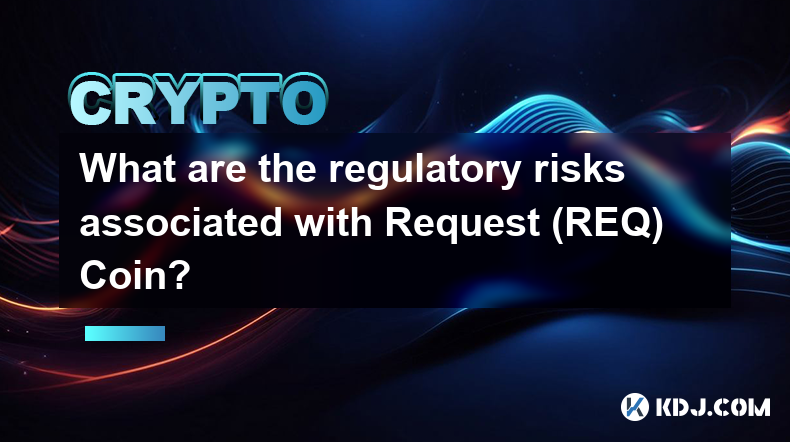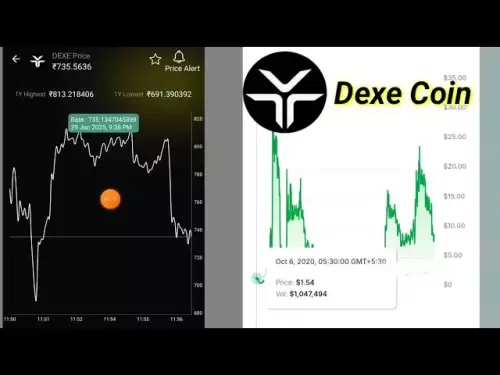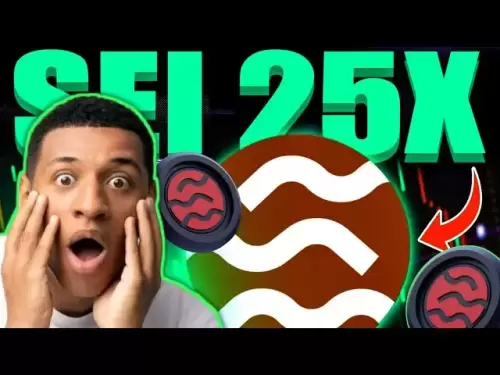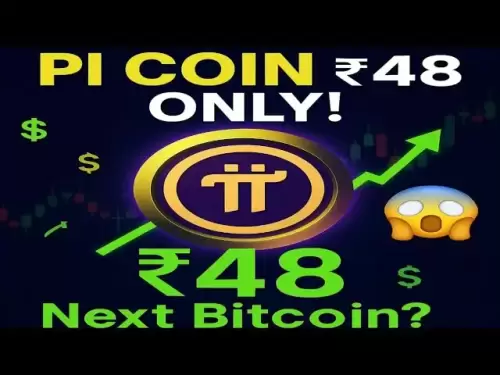-
 Bitcoin
Bitcoin $108,165.4587
0.78% -
 Ethereum
Ethereum $2,456.3517
1.15% -
 Tether USDt
Tether USDt $1.0003
0.00% -
 XRP
XRP $2.1934
0.05% -
 BNB
BNB $650.0935
0.52% -
 Solana
Solana $151.3905
2.69% -
 USDC
USDC $0.9998
0.00% -
 TRON
TRON $0.2751
-0.32% -
 Dogecoin
Dogecoin $0.1640
0.87% -
 Cardano
Cardano $0.5631
0.57% -
 Hyperliquid
Hyperliquid $38.7115
4.69% -
 Bitcoin Cash
Bitcoin Cash $493.1868
-0.39% -
 Sui
Sui $2.8217
3.61% -
 Chainlink
Chainlink $13.3994
2.08% -
 UNUS SED LEO
UNUS SED LEO $9.1632
0.94% -
 Avalanche
Avalanche $18.0318
1.97% -
 Stellar
Stellar $0.2388
0.35% -
 Toncoin
Toncoin $2.8763
1.41% -
 Shiba Inu
Shiba Inu $0.0...01160
1.59% -
 Litecoin
Litecoin $86.6393
1.29% -
 Hedera
Hedera $0.1485
0.16% -
 Monero
Monero $315.7948
1.56% -
 Polkadot
Polkadot $3.4240
1.88% -
 Bitget Token
Bitget Token $4.6314
-0.44% -
 Dai
Dai $0.9998
-0.01% -
 Ethena USDe
Ethena USDe $1.0002
-0.01% -
 Uniswap
Uniswap $7.2110
2.59% -
 Aave
Aave $270.6087
6.07% -
 Pi
Pi $0.5350
0.52% -
 Pepe
Pepe $0.0...09545
1.26%
What are the regulatory risks associated with Request (REQ) Coin?
Despite regulatory uncertainty, Request Network's proactive mitigation strategies and collaboration with regulators aim to maintain regulatory compliance and foster the long-term growth of Request (REQ) Coin in the evolving cryptocurrency ecosystem.
Dec 26, 2024 at 09:44 am

Key Points:
- Definition of Request (REQ) Coin and its function in the cryptocurrency ecosystem
- Overview of the regulatory frameworks surrounding cryptocurrency
- Examination of potential regulatory risks specific to REQ Coin
- Mitigation strategies employed to address regulatory concerns
- Impact of regulatory uncertainties on the REQ Coin market
Understanding Request (REQ) Coin
Request (REQ) Coin operates on the Ethereum blockchain and leverages Request Network, a decentralized platform facilitating billing and payment validation processes. It enables requestors to send encrypted payment requests to payers, providing a tamper-proof record of transaction details. REQ Coin acts as the medium of exchange within the Request Network ecosystem, allowing users to pay for services rendered.
Regulatory Framework for Cryptocurrency
Cryptocurrency regulation varies significantly across jurisdictions, with governments adopting diverse approaches. These frameworks typically aim to balance innovation and risk management, addressing concerns such as financial stability, consumer protection, and illicit finance. Regulatory measures often encompass requirements for:
- Licensing and registration of cryptocurrency exchanges
- Anti-money laundering and counter-terrorist financing (AML/CTF) compliance
- Investor protection and disclosure norms
- Taxation guidelines for cryptocurrency transactions
Regulatory Risks Associated with REQ Coin
REQ Coin faces several potential regulatory risks due to its decentralized nature and the broader uncertainty surrounding cryptocurrency regulation:
- Classification as a Security: Authorities may categorize REQ Coin as a security, subjecting it to stricter regulatory oversight and disclosure obligations similar to stocks or bonds.
- Market Manipulation Concerns: The decentralized and anonymous nature of cryptocurrency trading can facilitate market manipulation and price volatility, potentially inviting regulatory scrutiny.
- Anti-Money Laundering Risks: The lack of centralized control over REQ Coin transactions could make it susceptible to use for illicit activities, raising AML/CTF compliance challenges for exchanges.
- Cross-Border Compliance: REQ Coin transactions can cross jurisdictional boundaries, creating potential conflicts with varying regulatory regimes and increasing compliance complexity.
- Taxation Uncertainties: The classification of REQ Coin for tax purposes varies among countries, leading to potential uncertainties and tax implications for users.
Mitigation Strategies for Regulatory Risks
To mitigate regulatory risks, Request Network has implemented several measures:
- Legal Advisory and Compliance Infrastructure: Request Network collaborates with legal experts to ensure compliance with emerging regulations and proactively addresses regulatory concerns.
- Partnership with Regulated Entities: The platform partners with reputable exchanges that adhere to strict AML/CTF standards, enhancing the transparency and credibility of REQ Coin transactions.
- User Education and Awareness: Request Network emphasizes educating users on responsible cryptocurrency usage, promoting understanding of regulatory requirements and best practices.
- Technological Innovations: The development of additional features and capabilities within the Request Network platform aims to strengthen security measures and facilitate compliance with evolving regulations.
- Collaboration with Regulators: Request Network engages with regulatory bodies to foster dialogue and contribute to the development of appropriate regulatory frameworks for cryptocurrency.
Impact of Regulatory Uncertainties on REQ Coin Market
Uncertainty in the regulatory landscape for REQ Coin can impact its market valuation and liquidity:
- Investor Confidence: Regulatory ambiguity can dampen investor confidence and limit demand for REQ Coin, affecting its price stability.
- Liquidity and Market Depth: Concerns over regulatory risks may reduce liquidity and depth in the REQ Coin market, making it more susceptible to price fluctuations.
- Market Innovation: Regulatory uncertainty can hinder innovation within the REQ Coin ecosystem as developers may hesitate to build on a platform with unclear regulatory status.
- Long-Term Market Growth: The long-term growth potential of REQ Coin could be hindered by prolonged regulatory uncertainties.
FAQs on REQ Coin Regulatory Risks
Q1. What regulatory actions could potentially target REQ Coin?
A1. Potential regulatory actions could include classification as a security, enhanced AML/CTF compliance requirements, cross-border enforcement efforts, and tax regulations.
Q2. How does REQ Network address AML/CTF risks associated with REQ Coin?
A2. Request Network partners with regulated exchanges that implement AML/CTF measures, provides user education on best practices, and implements technological tools to enhance transaction transparency.
Q3. What impact could a security classification by regulators have on REQ Coin?
A3. A security classification could subject REQ Coin to stricter disclosure requirements, investor protection measures, and higher regulatory oversight, potentially affecting its market dynamics and user adoption.
Q4. How does regulatory uncertainty affect the REQ Coin market value?
A4. Regulatory uncertainty can reduce investor confidence, limit liquidity, hinder innovation, and constrain the long-term growth potential of the REQ Coin market.
Q5. What role does Request Network play in mitigating regulatory risks for REQ Coin?
A5. Request Network fosters collaboration with regulators, provides legal advisory support, partners with compliant exchanges, and develops technological solutions to address regulatory concerns.
Disclaimer:info@kdj.com
The information provided is not trading advice. kdj.com does not assume any responsibility for any investments made based on the information provided in this article. Cryptocurrencies are highly volatile and it is highly recommended that you invest with caution after thorough research!
If you believe that the content used on this website infringes your copyright, please contact us immediately (info@kdj.com) and we will delete it promptly.
- Do Kwon, Terra (LUNA), Developments: What's the Latest?
- 2025-06-30 04:30:12
- MAGACOIN vs. Dogecoin: Riding the Crypto Growth Wave in 2025
- 2025-06-30 04:30:12
- Dogecoin, Ruvi AI, and Gains: A New Era of Crypto Opportunities?
- 2025-06-30 04:50:12
- BlockDAG's Presale Success: A Crypto Investment Opportunity?
- 2025-06-30 05:30:12
- Crypto Coin Picks: Unveiling Web3 AI, DOT, Render & LINK's Potential
- 2025-06-30 05:30:12
- MicroStrategy, Michael Saylor, and the Bitcoin Buying Binge: Will It Trigger a Supply Shock?
- 2025-06-30 05:35:12
Related knowledge

How to customize USDT TRC20 mining fees? Flexible adjustment tutorial
Jun 13,2025 at 01:42am
Understanding USDT TRC20 Mining FeesMining fees on the TRON (TRC20) network are essential for processing transactions. Unlike Bitcoin or Ethereum, where miners directly validate transactions, TRON uses a delegated proof-of-stake (DPoS) mechanism. However, users still need to pay bandwidth and energy fees, which are collectively referred to as 'mining fe...

USDT TRC20 transaction is stuck? Solution summary
Jun 14,2025 at 11:15pm
Understanding USDT TRC20 TransactionsWhen users mention that a USDT TRC20 transaction is stuck, they typically refer to a situation where the transfer of Tether (USDT) on the TRON blockchain has not been confirmed for an extended period. This issue may arise due to various reasons such as network congestion, insufficient transaction fees, or wallet-rela...

How to cancel USDT TRC20 unconfirmed transactions? Operation guide
Jun 13,2025 at 11:01pm
Understanding USDT TRC20 Unconfirmed TransactionsWhen dealing with USDT TRC20 transactions, it’s crucial to understand what an unconfirmed transaction means. An unconfirmed transaction is one that has been broadcasted to the blockchain network but hasn’t yet been included in a block. This typically occurs due to low transaction fees or network congestio...

How to check USDT TRC20 balance? Introduction to multiple query methods
Jun 21,2025 at 02:42am
Understanding USDT TRC20 and Its ImportanceUSDT (Tether) is one of the most widely used stablecoins in the cryptocurrency market. It exists on multiple blockchain networks, including TRC20, which operates on the Tron (TRX) network. Checking your USDT TRC20 balance accurately is crucial for users who hold or transact with this asset. Whether you're sendi...

What to do if USDT TRC20 transfers are congested? Speed up trading skills
Jun 13,2025 at 09:56am
Understanding USDT TRC20 Transfer CongestionWhen transferring USDT TRC20, users may occasionally experience delays or congestion. This typically occurs due to network overload on the TRON blockchain, which hosts the TRC20 version of Tether. Unlike the ERC20 variant (which runs on Ethereum), TRC20 transactions are generally faster and cheaper, but during...

The relationship between USDT TRC20 and TRON chain: technical background analysis
Jun 12,2025 at 01:28pm
What is USDT TRC20?USDT TRC20 refers to the Tether (USDT) token issued on the TRON blockchain using the TRC-20 standard. Unlike the more commonly known ERC-20 version of USDT (which runs on Ethereum), the TRC-20 variant leverages the TRON network's infrastructure for faster and cheaper transactions. The emergence of this version came as part of Tether’s...

How to customize USDT TRC20 mining fees? Flexible adjustment tutorial
Jun 13,2025 at 01:42am
Understanding USDT TRC20 Mining FeesMining fees on the TRON (TRC20) network are essential for processing transactions. Unlike Bitcoin or Ethereum, where miners directly validate transactions, TRON uses a delegated proof-of-stake (DPoS) mechanism. However, users still need to pay bandwidth and energy fees, which are collectively referred to as 'mining fe...

USDT TRC20 transaction is stuck? Solution summary
Jun 14,2025 at 11:15pm
Understanding USDT TRC20 TransactionsWhen users mention that a USDT TRC20 transaction is stuck, they typically refer to a situation where the transfer of Tether (USDT) on the TRON blockchain has not been confirmed for an extended period. This issue may arise due to various reasons such as network congestion, insufficient transaction fees, or wallet-rela...

How to cancel USDT TRC20 unconfirmed transactions? Operation guide
Jun 13,2025 at 11:01pm
Understanding USDT TRC20 Unconfirmed TransactionsWhen dealing with USDT TRC20 transactions, it’s crucial to understand what an unconfirmed transaction means. An unconfirmed transaction is one that has been broadcasted to the blockchain network but hasn’t yet been included in a block. This typically occurs due to low transaction fees or network congestio...

How to check USDT TRC20 balance? Introduction to multiple query methods
Jun 21,2025 at 02:42am
Understanding USDT TRC20 and Its ImportanceUSDT (Tether) is one of the most widely used stablecoins in the cryptocurrency market. It exists on multiple blockchain networks, including TRC20, which operates on the Tron (TRX) network. Checking your USDT TRC20 balance accurately is crucial for users who hold or transact with this asset. Whether you're sendi...

What to do if USDT TRC20 transfers are congested? Speed up trading skills
Jun 13,2025 at 09:56am
Understanding USDT TRC20 Transfer CongestionWhen transferring USDT TRC20, users may occasionally experience delays or congestion. This typically occurs due to network overload on the TRON blockchain, which hosts the TRC20 version of Tether. Unlike the ERC20 variant (which runs on Ethereum), TRC20 transactions are generally faster and cheaper, but during...

The relationship between USDT TRC20 and TRON chain: technical background analysis
Jun 12,2025 at 01:28pm
What is USDT TRC20?USDT TRC20 refers to the Tether (USDT) token issued on the TRON blockchain using the TRC-20 standard. Unlike the more commonly known ERC-20 version of USDT (which runs on Ethereum), the TRC-20 variant leverages the TRON network's infrastructure for faster and cheaper transactions. The emergence of this version came as part of Tether’s...
See all articles

























































































